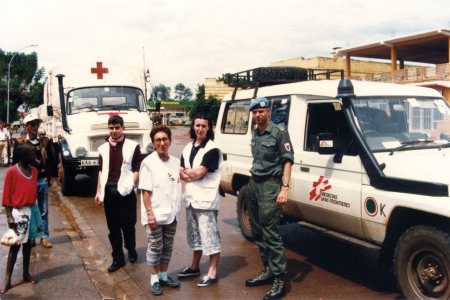 Xavier Lassalle
News in brief
Xavier Lassalle
News in brief
genocide
 Xavier Lassalle
News in brief
Xavier Lassalle
News in brief
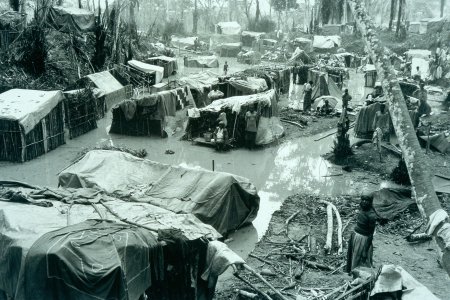 Frederic Sautereau
News in brief
Frederic Sautereau
News in brief
Listen to the MSF Speaking Out podcast: “The Hunting and Killing of Rwandan refugees in Zaire-Congo 1996-1997”.
01/05/2023MSF releases the podcast “MSF Speaking Out: The Hunting and Killing of Rwandan refugees in Zaire-Congo 1996-1997” describing the dilemmas, challenges and controversies faced by the MSF teams including: could MSF communicate publicly on the health condition of the refugees when its access to them had recently been denied? When it realised its teams were being used to lure and kill refugees, should the organisation cease its activities and condemn this manipulation?
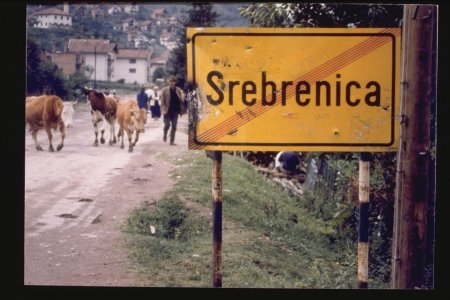 News in brief
News in brief
MSF releases the “Speaking out: Srebrenica podcast”
12/15/2021MSF releases in English, French and in Arabic the “MSF Speaking Out: Srebrenica” podcast based on the original MSF Speaking Out Case Study (SOCS) “MSF in Srebrenica, 1993 – 2003”.
Le Grand Voyage d'Alice
11/17/2021The comic book "Le Grand Voyage d'Alice" was drawn by Gaspard Talmasse and published by La boîte à bulles on November 17th. The preface of this comic book was written by Dr. Jean-Hervé Bradol, former president of MSF and director of studies at the Reflection center of MSF (MSF-Crash). The book won the MSF prize at the Carnet de voyages Festival in Clermont-Ferrand, held from November 19th to the 21st.
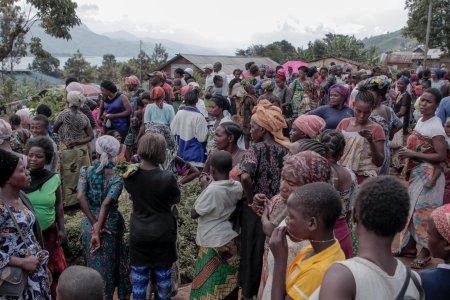 Yves Ndjadi
Book
Yves Ndjadi
Book
Extreme violence. Investigating, Saving, Judging Democratic Republic of Congo, Rwanda, Syria
09/23/2021Over the last few years, Rwanda, the Democratic Republic of Congo (DRC) and Syria have been places where situations of extreme violence took place. As witnesses and investigators of such, the authors of this book shed light on three key-moments that marked these tragic episodes: the investigation, the intervention of emergency relief teams and the implementation of justice procedures leading to judgement.
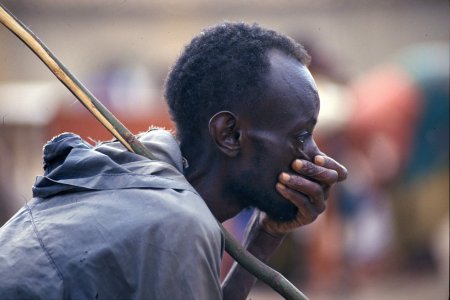 Roger Job
Conference
Roger Job
Conference
France in Rwanda. Guilty neutrality
02/11/2019 - 06:00 PM 08:00 PMThe CRASH team invited you to the screening-debate “France in Rwanda. Guilty neutrality” on Monday 11th of February 2019 from 6 to 8pm, in the 1rst floor room of the 8 rue Saint-Sabin. A documentary film by Robert Genoud and Claudine Vidal (Director Emeritus for research at the CNRS, member of the CRASH scientific committee at MSF), and produced by EUP. Before and after the screening, Claudine Vidal and Jean-Hervé Bradol, both actors of MSF mobilization between 1994 and 1998 launched the discussion.
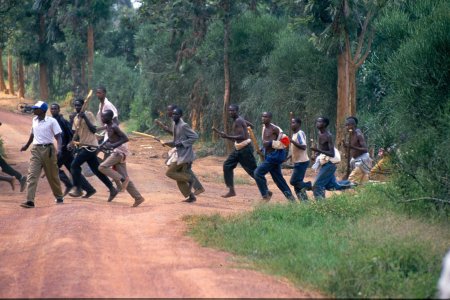 Roger Job
Review
Roger Job
Review
From War To Genocide: Criminal Politics in Rwanda 1990–1994; Humanitarian Aid, Genocide and Mass Killings: Médecins Sans Frontiéres, The Rwandan Experience, 1982–97
10/07/2018Although much has been written about the 1994 genocide in Rwanda, two recent volumes offer fresh perspectives and add considerable insights. Guichaoua’s From War to Genocide: Criminal Politics in Rwanda 1990–1994 takes the reader deep into the belly of the beast. The book describes and analyzes the real politics of the politics of genocide based on extraordinary detailed evidence with respect to the strategies and tactics of key military and political players. Bradol and Le Pape’s Humanitarian Aid, Genocide and Mass Killings: Médecins Sans Frontières, The Rwandan Experience, 1982–97 offers a unique understanding of the consequences of this murderous political game from the point of view of humanitarian aid workers in general and the NGO Doctors Without Borders (Médecins Sans Frontières – MSF) in particular.
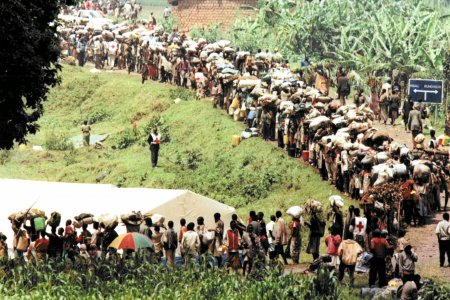 John Parkin
Opinion
John Parkin
Opinion
Debate: Judi Rever will not let anything stand in the way of her quest to document a second Rwandan genocide
06/06/2018Published in March 2018, Judi Rever’s investigative work, In Praise of Blood, quickly garnered international attention. It is an indictment of both the Rwandan patriotic front (RPF) and its leader, current Rwandan president Paul Kagame, and foreign governments and international institutions – the International Criminal Tribunal for Rwanda (ICTR), in particular – that allowed crimes committed against Hutu civilians to go unpunished.Judi Rever’s book is more than a work of investigation. It reads like a prosecutor’s closing argument: the massacres are described in such a way as to classify them as genocide. And it is precisely this combination of investigation and the pursuit of evidence that would stand up in a court of law that is problematic.
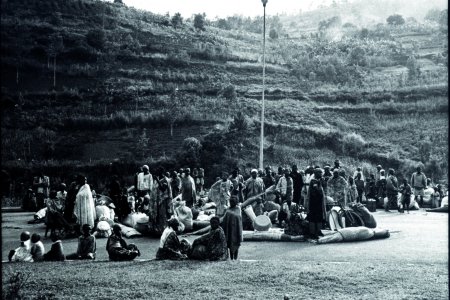 Xavier Lassalle/MSF
Opinion
Xavier Lassalle/MSF
Opinion
Genocide from an historical, legal and political standpoint
04/05/2018The publication of the journalist Judi Rever’s book, In Praise of Blood, on the crimes committed by the Rwandan Patriotic Front’s armed rebellion has rekindled discussion over the existence of a “double genocide”, one committed against the Tutsis under the orders of Rwanda’s interim government which took power in April 1994 following the assassination of President Habyarimana, and the other against the Hutus by the Rwandan Patriotic Front (RPF) which seized power in July 1994. There is little or no controversy about the reality of the genocide of the Tutsis in the world of Rwandan studies, but the claim that the Hutus were in turn victims of genocide sparks reactions as violent as they are confused. The cause of this confusion can be found in the different definitions of a term used in at least three fields: history, law and politics.
 Opinion
Opinion
Writing About Rwanda: President Kagame’s Fellow Travellers
10/23/2017How can anyone write about Rwanda without being called a denialist? Marc Le Pape tries to craft an answer in this article, published on the website The Conversation on 19 October 2017.
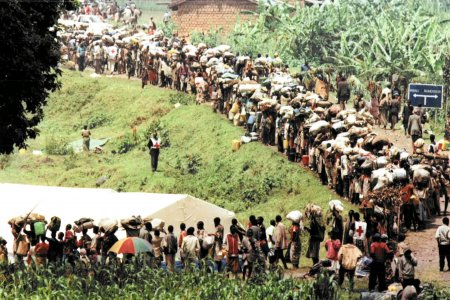 John Parkin
Interview
John Parkin
Interview
Living through the horrors of genocide: humanitarian workers in Rwanda
01/10/2018How much is known about the daily experiences of humanitarian workers in extreme situations such as major conflict or disaster? In their new book, “Humanitarian Aid, Genocide and Mass Killings: Médecins sans frontières, the Rwandan experience, 1982-97”, Marc Le Pape and Jean-Hervé Bradol set out to answer some of these questions. The book is also informed by Bradol’s experience of working for Médecins Sans Frontières in Rwanda during the genocide.
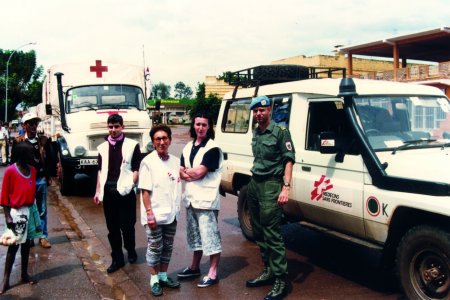 Xavier Lassalle
Op-ed
Xavier Lassalle
Op-ed
Dictators’ Democratic Friends
10/27/2017This op-ed article was published on 27 October 2017 in the French weekly Marianne. He writes it in the backdrop of a controversy around a "Que Sais-Je" book on Rwanda published by the Belgian researcher, Filip Reyntjens and the accusations against him that he rewrites history and seeks to minor the genocide of the Tutsis in 1994.
